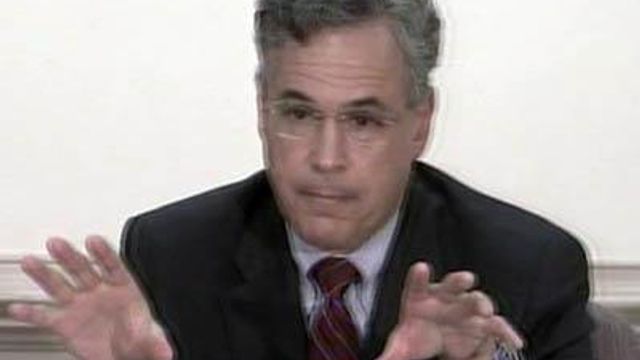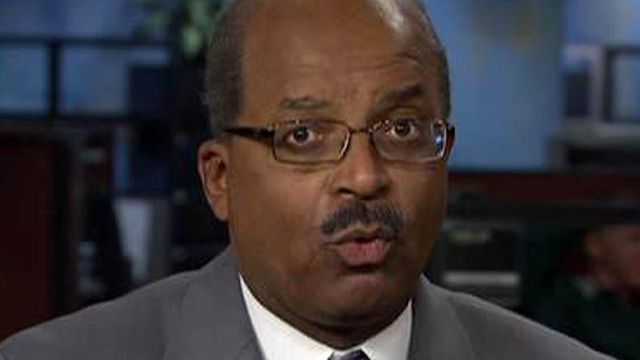Two 'probable' H1N1 cases in N.C.
Public health officials on Thursday confirmed two "probable" cases of the virus also known as swine flu in North Carolina and 10 confirmed cases in South Carolina.
Posted — UpdatedNationwide, more than 100 cases of the H1N1 virus had been confirmed in at least 11 states as of Thursday, and state officials confirmed 22 more. Five of those people have been hospitalized. A 23-month-old boy in Houston is the only person in the U.S. to die from the disease.
The State newspaper in Columbia, S.C., reported that the South Carolina cases – the first confirmed cases in the Southeast – were linked to Newberry Academy. Several students at the private school in Newberry, S.C., recently returned from a trip to Mexico.
Dr. Jerry Gibson, chief of the S.C. Department of Health and Environmental Control's Bureau of Disease Control, said all of the people have recovered from the illness, the newspaper reported.
In North Carolina, tests on an Onslow County resident and a traveler in Wake County showed the pair probably have H1N1, State Health Director Dr. Jeffrey Engel said. Probable cases are samples that show a type of influenza that isn't a seasonal strain, he said.
The Onslow resident had been traveling in Texas, and the other person was traveling on business but not on a commercial airline flight, Engel said.
States have been relying on the Centers for Disease Control and Prevention to confirm the presence of the virus. Engel said North Carolina has forwarded the two probable samples to the CDC for further testing and should get the results within a few days.
One hundred other samples submitted to the state lab have tested negative for the virus, Engel said.
"Our lab's working around the clock to keep up," Engel said, noting 108 of the 235 samples being tested arrived at the lab on Thursday.
Engel said he exects more cases to pour in.
“I suspect this is going to go on for weeks to months,” Engel said.
He said he doesn't worry about overreacting to the situation.
"The reaction of the media and the public to this event is appropriate. We are now in WHO phase five, (and) if we go to phase six, we have a full-fledged pandemic on our hands. This is serious business," he said.
N.C. has pandemic plan in place
Still, he said, state and local public health officials are prepared for an outbreak, having drawn up a detailed plan five years ago to combat a pandemic virus and having conducted periodic drills since then.
"We have a plan, we've activated that plan, and we're marching to it," he said.
CDC testing kits were expected to arrive in Raleigh by late Thursday, allowing the state lab to do its own testing as soon as this weekend to confirm the presence of H1N1, Engel said.
"Getting a test for a new virus out this quickly – basically within a week – is (a result of) the miracle of modern molecular medicine," he said. "This is really very fast."
The CDC also has distributed a quarter of the nation's strategic stockpile of anti-viral medications and masks, and Engel said North Carolina received its allotment early Thursday. He said the supplies would be dispatched to counties statewide by the weekend.
Officials have no plans to distribute any of the 660,000 doses of flu treatment the state has stockpiled, he said, noting the commercial market has more than enough medication to meet current demand.
The state health department is also working with the Department of Public Instruction to come up with a plan if the virus is found in a school.
Engel urged residents to take the precautions they would during the annual flu season, such as staying home if they don't feel well, covering up when coughing or sneezing, washing their hands frequently with soap and water for at least 15 seconds and seeing a doctor if they develop serious flu symptoms.
Swine flu label abandoned
The WHO on Thursday stopped using the term "swine flu" to characterize the virus. Officials said they wanted to end the confusion among many people who believed they could contract the disease by eating pork.
The Egyptian government, for example, ordered all pigs in the country be slaughtered, and officials began killing 300,000 swine on Wednesday. No cases of H1N1 have been reported in Egypt.
The H1N1 virus can spread from pigs to humans, but most of the current outbreak is because of person-to-person contact, according to the CDC.
In addition to South Carolina, the CDC has confirmed cases in Arizona, California, Indiana, Kansas, Massachusetts, Michigan, New York, Nevada, Ohio and Texas.
Officials in New Jersey, Delaware, Maine, Colorado, Georgia and Minnesota have confirmed cases that haven't been included in the CDC count. Also, the Pentagon said that a Marine in southern California had tested positive for the disease, leading to the quarantine of a number of his comrades.
Globally, more than 250 cases have been confirmed in Mexico, the U.S., Canada, New Zealand, Britain, Germany, Spain, Israel, Austria, Switzerland and The Netherlands.
The WHO said most of the people worldwide with H1N1 were in Mexico. The strain is suspected in more than 165 deaths in that country, and about 2,500 others there may be suffering symptoms.
Mexican officials said, however, that the number of new deaths from the disease appears to be leveling off.
Still, President Felipe Calderon said in a televised address Wednesday night that only essential businesses like supermarkets, hospitals and pharmacies should stay open and only critical government workers like police and soldiers would be on duty from Friday through Tuesday.
"There is no safer place to protect yourself against catching swine flu than in your house," Calderon said.
Obama and other U.S. officials resisted calls to close the U.S. border with Mexico, calling it a monumental undertaking with questionable benefits.
"The real focus needs to be now on what do we do to reduce the spread of the disease within our borders," Homeland Security Secretary Janet Napolitano said Thursday.
Obama has asked Congress to approve $1.5 billion to fight the outbreak. Money would go toward improved monitoring to identify and isolate suspected cases and upgrades in testing both to confirm cases and to develop vaccines.
"The key now is to just make sure we are maintaining great vigilance, that everybody responds appropriately when cases do come up and individual families start taking very sensible precautions that can make a huge difference," Obama said Thursday.
Copyright 2024 by WRAL.com and the Associated Press. All rights reserved. This material may not be published, broadcast, rewritten or redistributed.






